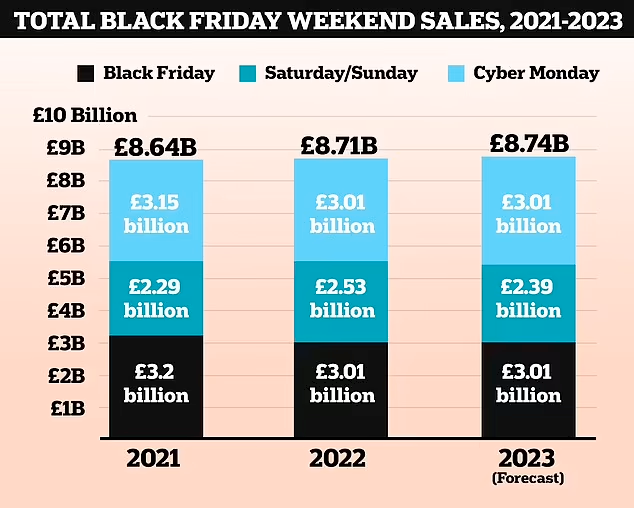Is Black Friday a Boost or a Drag for the UK Economy?
Black Friday, a shopping extravaganza originating in the United States, has firmly established in the UK retail calendar over the past decade. The annual event, which takes place the day after Thanksgiving, traditionally marks the start of the Christmas shopping season. While it brings with it a flurry of discounted deals and consumer excitement, the impact of Black Friday on the UK economy is a topic of considerable debate.
The origins of Black Friday
Black Friday has its roots in the United States and can be traced back to the 1950s. The term originally referred to the chaotic and congested post-Thanksgiving traffic in Philadelphia. Over time, retailers cleverly repurposed the term to denote the point at which they began to turn a profit, moving from in the red to in the black. The phrase in the red describes a business with negative earnings, while in the black refers to a profitable and financially solvent business. These colours are derived from the ink accountants use to record figures in financial statements.
Black Friday evolved with earlier openings on Thanksgiving (Black Thursday), causing a decline in sales in 2014. Retailers responded by closing on Thanksgiving in 2015 and emphasising online deals. This sparked debates about the commercialisation of Thanksgiving and its impact on workers. COVID-19 in 2020 halted in-store Thanksgiving sales, boosting online spending. Major retailers like Target are permanently closed on Thanksgiving, moving away from early opening trends.
Madness all around the world - what about the UK?
In the UK, Black Friday was originally the last Friday before Christmas when emergency services activated contingency plans. It is now a mainstream term referring to the Friday before Christmas, challenging the traditional shopping prominence of Boxing Day. American-owned retailers introduced Black Friday promotions in the 2010s, with challenges in 2014 leading to the modification or cancellation of promotions. Online spending on Black Friday reached £1.23 billion in 2016. In Welsh, Black Friday is known as 'Dydd Gwener y Gwario Gwirion' (Silly Spending Friday).
Black Friday's impact reaches luxury retailers like Harrods and Selfridges, where opulence meets the retail frenzy. This intersection of luxury and discount-driven shopping reflects evolving consumer dynamics during the annual extravaganza. Research by VoucherCodes suggested that over the four-day weekend, including Cyber Monday, shoppers will spend £8.74 billion both in-store and online. Spending on Black Friday is expected to be at £3.01 billion this year.

Challenges and controversies - since there are lots of them
Concerns about over-consumption and the environmental impact of increased production and waste exist. The intense focus on consumerism has led to criticism that the event contributes to a throwaway culture.
The physical shopping experience on Black Friday has been marred by overcrowded stores, disputes over discounts and instances of unruly behaviour - there is a website that tracks deaths and injuries on Black Friday. The encroachment of Black Friday on Thanksgiving has sparked debates about the commercialisation of the holiday and the impact on retail workers, who often have to work on what is traditionally a family day. Small businesses may struggle to compete with large retailers offering deep discounts, potentially affecting their profit margins. The event has also faced backlash for its impact on local communities and traditional values.
The shift to online shopping during Black Friday raises concerns about cybersecurity, data breaches and the potential exploitation of consumer data. Overall, the challenges and controversies surrounding Black Friday encompass environmental, social, economic and ethical dimensions.
Is it a boost or a drag?
The impact of Black Friday on the UK economy is a complex and controversial issue. On the one hand, Black Friday significantly boosts the retail sector and increases consumer spending. The surge in sales during this period positively impacts the economy, leading to job creation, particularly in the retail and logistics sectors. The event has also spurred the growth of e-commerce in the UK.
On the other hand, Black Friday has its challenges and controversies. There are concerns about the environmental impact of increased production and consumption and the potential negative impact on small businesses that may struggle to compete with larger retailers offering deep discounts. The commercialisation of Black Friday and its encroachment on Thanksgiving has also sparked debates about societal values and the well-being of retail workers.
While Black Friday undeniably provides a short-term economic boost, its long-term impact raises questions about sustainability, ethical considerations and the balance between economic gains and potential drawbacks for different stakeholders in the UK.
Our blog
Latest blog posts
Tool and strategies modern teams need to help their companies grow.
